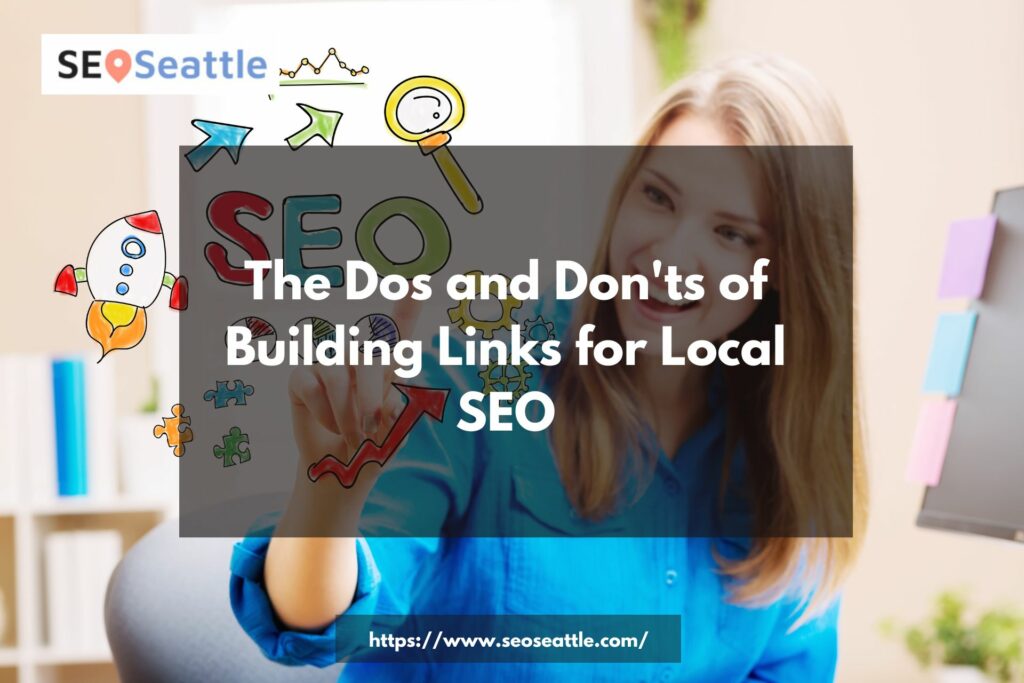Building links for local SEO is an essential part of improving your website’s visibility in local search results. However, it’s crucial to approach link-building carefully, as some practices can be beneficial while others can lead to penalties from search engines. Here are the dos and don’ts of building links for local SEO:
Dos:
- Create High-Quality Content: Start with creating valuable, informative, and relevant content on your website. This will naturally attract organic links from other websites.
- Local Directories: List your business on reputable local directories such as Google My Business, Yelp, Bing Places, and industry-specific directories. Ensure your business information is accurate and consistent across all platforms.
- Local Citations: Get mentioned on local websites and publications, including newspapers, blogs, and local event sites. These citations can boost your local authority.
- Guest Blogging: Write high-quality guest posts for local blogs, news outlets, or industry-specific websites. Include a link back to your website in your author bio or within the content when relevant.
- Leverage Social Media: Share your content and engage with the local community on social media platforms. Social signals can indirectly impact local SEO.
- Local Partnerships: Build relationships with other local businesses and organizations. Collaborate on projects, sponsor events, or participate in local initiatives that can lead to link opportunities.
- Local Reviews: Encourage satisfied customers to leave reviews on platforms like Google, Yelp, and Facebook. Positive reviews can indirectly influence local search rankings.
Don’ts:
- Paid Links: Avoid buying links, as this violates search engine guidelines and can lead to penalties. Always focus on natural link acquisition.
- Low-Quality Directories: Don’t submit your website to low-quality or spammy directories. Stick to reputable directories that are relevant to your industry and location.
- Keyword Stuffing: Avoid over-optimizing anchor text with exact-match keywords. Use natural and relevant anchor text to avoid looking spammy.
- Duplicate Content: Don’t publish duplicate content on multiple websites, as this can harm your SEO efforts. Each piece of content should be unique and valuable.
- Irrelevant Links: Avoid getting links from websites that are not related to your industry or location. Relevance is essential for local SEO.
- Link Farms and Private Blog Networks (PBNs): Stay away from these black-hat practices, which involve creating a network of low-quality sites for the sole purpose of linking to your site. Search engines penalize such tactics.
- Ignoring Negative SEO: Monitor your backlink profile regularly to identify and disavow any toxic or spammy links. Ignoring negative SEO can harm your local SEO efforts.
- Rapid Link Building: Avoid suddenly acquiring a large number of links in a short period. This can raise suspicion with search engines. Focus on a steady, natural link-building strategy.
Remember that building links for local SEO is an ongoing process. It requires patience, consistency, and a focus on providing value to your local audience. By following these dos and don’ts, you can improve your website’s local search rankings while maintaining a strong online reputation.
